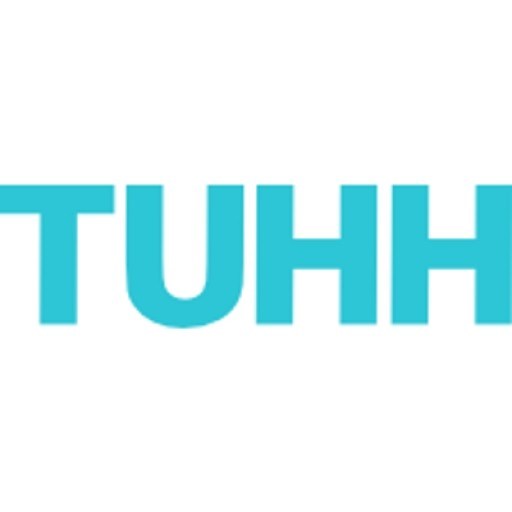Photos of university
The MSc Molecular Bioengineering program at Technische Universität Dresden offers students the opportunity to explore the interdisciplinary field where biology, engineering, and information technology intersect. This comprehensive course is designed to equip students with both foundational knowledge and practical skills necessary to develop innovative solutions in the life sciences, biotechnology, and healthcare sectors. Throughout the program, students delve into advanced topics such as molecular biology, biochemistry, bioprocess engineering, systems biology, and bioinformatics, enabling them to understand and manipulate biological systems at the molecular level. The curriculum emphasizes experimental techniques, computational methods, and engineering principles, fostering an integrative approach to problem-solving in medical, pharmaceutical, and biotechnological contexts. Students gain hands-on experience through laboratory courses, project work, and collaborations with industry partners, preparing them for careers in research, development, or management roles within the biotechnology industry, academia, or healthcare organizations. The program also promotes interdisciplinary collaboration and innovation, encouraging students to develop novel biomaterials, biointerfaces, and biotechnological applications. Graduates of the MSc Molecular Bioengineering program are well-equipped to contribute to advancements in personalized medicine, regenerative therapies, bioinformatics, and biosensor development. The university's state-of-the-art laboratories and research facilities, combined with a vibrant academic environment, provide students with an optimal setting for scientific discovery and professional growth. Overall, this program offers a rigorous and versatile education that prepares graduates to meet the challenges of modern molecular bioengineering and to make significant impacts in science and industry.
Educational organisation
The lectures and lab classes take place primarily during the first three semesters. The lab classes are organised as blocks at the end of each semester. These classes run for several weeks. There are examinations at the end of each semester for each course. Additionally, there is a module on public and economic aspects of bioengineering, which discusses ethical and jurisdictional issues, patenting, and how to found and lead biotechnology companies. Half of the third semester includes the work on a lab project. The fourth and final semester is mainly devoted to the Master's thesis.Due to the limited number of students (about 30 per academic year), it is possible to organise the lectures so that the students are actively involved. This allows full participation by the students during the lectures and lab classes.
Study abroad unit(s)
Students have the possibility to go abroad for their Master's thesis during the fourth semester of the Master's programme.Internships
Lab classes are part of the curriculum of the Master's programme. Usually, they are organised as blocks at the end of each semester. Moreover, students work on a project in a lab in the third semester as a preparation for the Master's thesis.Forms of assessment
For each module, there are written or oral examinations at the end of the lecture periods in accordance with the study and examination regulations. During the seminars and lab classes, presentations are held and protocols and reports have to be written and/or presented. A Master's thesis has to be written during the last semester of the Master's programme. The results of the work have to be presented in a colloquium/defence.For each module, the credit points are awarded when the module is successfully completed. The Master's thesis is worth 30 credit points. In total, 120 credit points are awarded for the Master's programme.
Course objectives
On the basis of the discussed methods and different scientific approaches the graduates are able to conduct independent scientific research. They can work on complex problems and solve them with scientific methods that may even lie beyond their current state of knowledge. They have gained subject-related expertise that is based on current research questions, methodological and analytical skills enabling them to independently broaden their scientific knowledge. In the development of this expertise, research methods and strategies play a central role. The graduates are able to think across scientific boundaries, communicate scientifically in a multidisciplinary field and solve economic problems.They acquired an interdisciplinary research and development competence that qualify them for scientific purposes (PhD) as well as the professional field in R&D departments of biotech companies.
A molecular bioengineer will have the possibility to continue in basic research, conduct research in institutions of higher education, occupy a research position in a biotech company, work in health biotechnology companies (to design new devices and medical therapeutics), develop new materials using cellular machines, or develop new means of sustainable energy production by using the molecular machinery of cells.
Language requirements
English proficiency: TOEFL: 550 points (paper-based test); 213 points (computer-based test); 79 points (internet-based test) or IELTS 6.0 or other equivalent and internationally recognised certificatesAcademic requirements
Applicants are required to have:1. A "Diplom", Bachelor's degree, or equivalent qualification in one of the following fields:
- biology/life sciences
- biotechnology
- chemistry/biochemistry
- computer science
- materials science
- medicine
- physics
- nanotechnology
3. A good command of English (TOEFL: 550 points paper-based test, 213 points computer-based test, 79 points internet-based test; IELTS: required level 6.0; certificates of other tests of equivalent standard are also considered)
Enrolment fees
The enrolment fee is currently about 260 EUR per semester and includes a semester ticket, which entitles students to use public transport in and around Dresden and regional trains within the federal state of Saxony. Additionally, it offers benefits (e.g. price reductions) for many cultural and leisure activities in Dresden.Costs of living
The cost of living varies according to personal needs and preferences. However, about 700 EUR per month represents an average budget for a student in Dresden, including expenses for accommodation, food, items of everyday life, and insurance.(This figure is relatively low compared to other big German cities.)
Job opportunities
In order to top up their budget, some students may want to look for temporary work in Dresden. If so, different regulations apply for students from EU member states, countries of the European Economic Area (EEA) and Switzerland, and students from outside the European Union and the EEA area. Please bear in mind that a temporary job is not easy to find. In addition, restrictions on the duration of employment may apply.Professors, lecturers and group leaders involved in the Master's programme may offer students the possibility of working as academic assistants (especially in the labs). However, living expenses can be financed only partially through a job as an academic assistant.
Funding opportunities within the university
Each year, students can apply for a "Deutschlandstipendium", a stipend of 300 EUR per month. The application round is usually open in summer for the following winter semester. Information can be found on the website of the TU Dresden.http://tu-dresden.de/studium/rund-ums-studium/foerderung-und-finanzierung/deutschlandstipendium
Arrival support
The university provides counselling via e-mail and personal appointments regarding all matters related to arrival and living in Dresden, guided campus tours, and welcome receptions to which new students are invited to meet other students and professors.For PhD students and researchers, the Welcome Center also provides additional support services concerning visa issues, finding suitable accommodation, etc.
Services and support for international students
TU Dresden International Office offers a tutor network that helps new international students organise their studies. All international freshers are invited to an introduction day at the beginning of their first semester, on which they will also meet their tutors.Furthermore, the International Office's cultural office and various student initiatives provide a plethora of social and cultural activities each semester (guided city tours, trips in the region and to other cities in Germany or neighbouring countries, language tandems, etc.).
Accommodation
It is quite easy to find accommodation in Dresden. Accommodation is available either via the Studentenwerk Dresden or on the private market. Rent for a single room in a student residence is approx. 250 EUR.Private housing can be found online. We recommend moving into a hall of residence at the beginning of your stay in Dresden and later find a place on the private market or in a shared apartment, known in German as a "Wohngemeinschaft".










